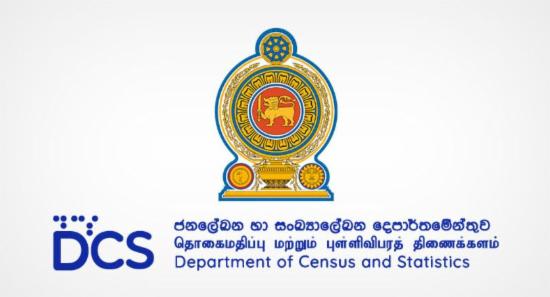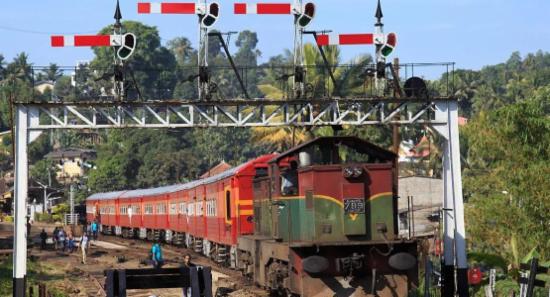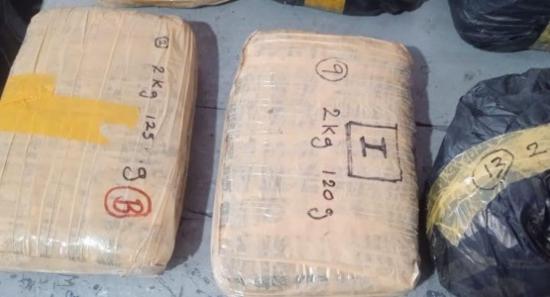.webp)
Sri Lanka & Tourist Visa: A Brewing Political Crisis?
COLOMBO (News 1st); The decision to outsource the tourist visa process to a foreign company has sparked intense debate.
Is this move evolving into a full-blown political crisis, or are other issues being raised to divert attention from the core matter?
On May 1st, a young man raised concerns over the decision to outsource the issuance of visas on arrival at the airport to a foreign company.
The move has sparked controversy and drawn attention from various quarters.
What Has Happened Now?
The decision to assign a portion of the visa issuance process to a foreign entity was based on approvals obtained from two cabinet papers submitted on separate occasions.
According to Minister Tiran Aless, the foreign company handling this process is VFS Global.
However, VFS Global clarified that it serves as the technical partner rather than the primary contractor.
In an official announcement, VFS Global identified GBS Technology Services and IVS Global as the main contractors responsible for executing this project.
Dr. Harsha De Silva, Chairman of the Finance Committee, has made public the cabinet papers related to this project.
According to these documents, GBS Technology Services and IVS Global are involved with a substantial investment of 200 million US dollars.
Despite its technical role, VFS Global is also referenced in the documents as the technical partner.
Is there an issue in outsourcing a segment of the visa process to a foreign entity in pursuit of streamlined efficiency?
Yesterday, the involved parties disclosed further details regarding this project.
In addition to the standard visa fee of $75, there were supplementary charges: a service fee of $18.50 and a facility fee of $7.27 for the issuance of a double-entry 6-month visa.
Consequently, the total cost for tourists seeking this visa amounts to $100.77.
Moreover, the issuance of visas, previously set at a one-time entry fee of $50, has been temporarily suspended for thirty days.
A significant critique has emerged regarding the potential loss of the government's share from the service fee of $18.50 and the convenience fee of $7.27 to a third party.
VFS Global addressed this concern yesterday, affirming in their statement that these fees, designated for their services, received approval from the Cabinet.
However, there remains a lack of clarity surrounding the allocation of the $7.27 fee.
The Daily Mirror reported that Tourism Minister Harin Fernando had told the Cabinet led by President Ranil Wickremesinghe, against the latest move and threatened to resign if new visa system continues without any changes.
In addition, Tourism Minister Harin Fernando refuted claims of his resignation dismissing a circulating letter as false.
However, it was decided at the Cabinet meeting held on Monday, 6th May, to maintain the existing US $50 fee for a 30-day visa for foreigners visiting Sri Lanka.
Furthermore, it was confirmed that the free visa service currently offered to citizens of seven countries, India, China, Russia, Japan, Malaysia, Thailand and Indonesia will continue while the Government also emphasizes that the Department of Immigration and Emigration assumes full responsibility for issuing relevant visas upon entry into the country for foreigners.
However, no specific details were provided regarding the service fee of $18.50 and the convenience fee of $7.27 imposed by the foreign company responsible for visa services, concerning the Cabinet's decision.
In a message disseminated by the Minister of Tourism on this matter, the following was outlined.
"As mentioned from the beginning, on the 7th May onwards a 30-day single-entry visa without all inclusive at $50 until our proposal for free visas for more than 50 countries is finalized. Till then 7 counties will enjoy free visa as before"
As per the Minister of Tourism's clarification, it's important to note that the base fee of $50 does not encompass the additional service fee of $18.50 or the convenience fee of $7.27.
Could the objection raised by the Minister of Tourism have influenced the Cabinet's decision yesterday?
As outlined by the Minister of Public Security during yesterday's press briefing, the implementation of this decision was slated to commence today.
"We must acknowledge a minor oversight on our part: the 30-day visa was intended to be priced at $50. However, during the passing of the legislation, it was inadvertently omitted from the system due to a missing document. According to our immigration laws, any changes, including those requiring a gazette notification, necessitate parliamentary approval. Therefore, our next step was to seek parliamentary endorsement, as mandated by law. During the preceding parliamentary session, before my departure from the country, we successfully ratified the $50 fee for the residency visa. This fee adjustment will be integrated into the system starting tomorrow: $50 for a single-entry thirty-day visa, $75 for a double-entry six-month visa, and varying fees for extended durations such as five and ten years," detailed Tiran Alles, the Public Security Minister on Monday (6).
In moments like these within the political sphere, it's noteworthy that the involved foreign companies continue to handle the visa processes.
Since the incident involving the young man on May 1st, the responsibility for visa issuance solely at airport points of entry has been reallocated to the Immigration Department.
Now, the question arises: is this a latent political matter left unaddressed? Or, perhaps, is it a maneuver to divert public attention away from the contentious aspects of the deal at hand?
"At present, discussing visas may not be entirely suitable, given that normalcy has been restored. We prefer to look optimistically ahead, focusing on our progress and moving forward as if this incident did not occur. The recovery gives us confidence that we can avoid such occurrences in the future," were the comments given by Sariffo Deen - Director General of the Sri Lanka Tourism Development Authority.
Other Articles
Featured News





.png )








-777755_550x300.jpg)
-777749_550x300.jpg)
-777743_550x300.jpg)
















.gif)